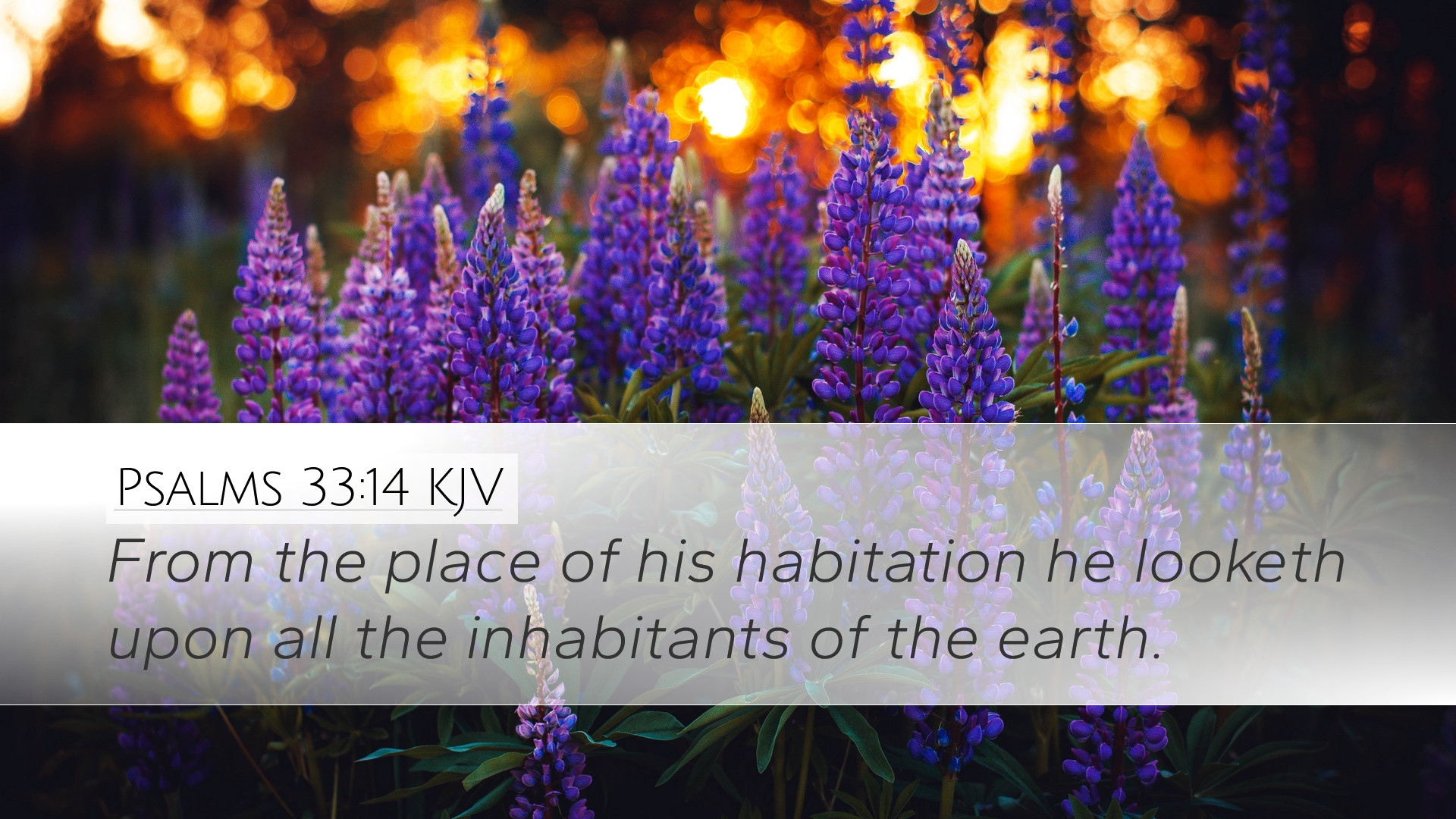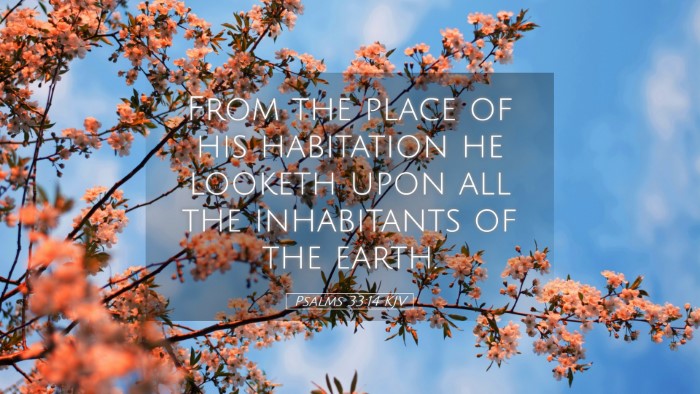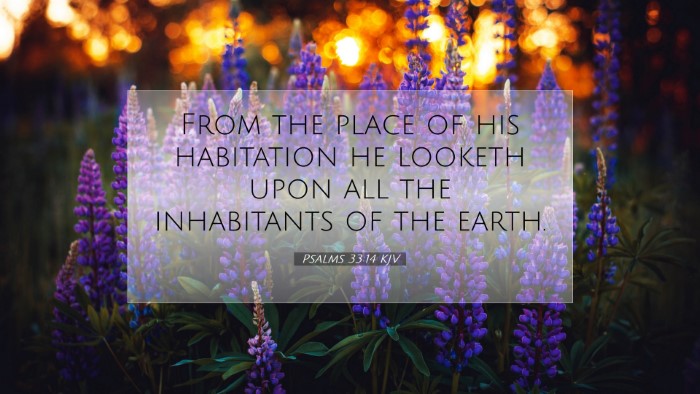Psalms 33:14 Commentary
Verse: "From the place of His habitation He looketh upon all the inhabitants of the earth."
Introduction
The verse from Psalms 33:14 provides a profound insight into the nature of God’s omniscience and omnipotence. This passage reveals that God, from His heavenly abode, observes and supervises every individual on earth. Such a declaration imposes both a sense of reassurance and a call to accountability among believers and seekers of truth.
Exegesis of Psalms 33:14
1. The Nature of God's Observation
- Albert Barnes emphasizes God's omnipresence, indicating that God’s ability to observe all is not merely spatial but also encompasses divine wisdom and understanding.
- Matthew Henry elaborates that God's looking upon the earth signifies His active engagement with creation, rendering Him not an indifferent deity but one who is involved in the affairs of men.
2. The Implication of His 'Habitation'
- Adam Clarke interprets ‘habitation’ as heaven, a place of authority and purity, underscoring the heavenly perspective from which God observes.
- This perspective allows God to see the entirety of human circumstances, therefore reinforcing the idea that His judgment is fair and informed.
Theological Significance
Within this verse lies critical theological reflections that are paramount for understanding God’s character and His relational stance towards humanity.
1. God as Sovereign Observer
- Henry notes that God’s all-seeing eye observes the deeds and thoughts of every person, reminding believers that nothing is hidden from Him.
- This concept fosters a sense of moral integrity, as believers are encouraged to live righteously knowing they are always in God's view.
2. Assurance of Divine Oversight
- Barnes posits that God’s watchfulness assures us of His providence, where God's governance ensures that no injustice goes unnoticed.
- The idea that God guards His creation instills comfort, particularly during trials and tribulations, affirming that believers are under His watchful care.
Pastoral Applications
This passage serves as an essential reminder for pastors and spiritual leaders to emphasize the character and watchfulness of God in their teachings.
1. Encouragement for Accountability
- This verse can guide pastoral counseling, encouraging congregants to pursue holiness and accountability, understanding that God sees into the depths of their hearts.
2. Divine Comfort and Hope
- Pastors can utilize the assurance of God's oversight to comfort those who feel abandoned or overlooked, reminding them of God’s constant presence and interest in their lives.
Reflections for Bible Scholars
For scholars and students, Psalms 33:14 presents an opportunity to delve deeper into the nature of God and His covenant with humanity.
1. The Intersection of Divine Sovereignty and Human Free Will
- This verse raises crucial questions concerning the tension between God’s sovereignty as seen in His oversight, and the free will exercised by human beings.
- Exploring these themes can lead to richer theological discourses and help bridge understandings of God’s governance with human agency.
2. Further Study of God’s Attributes
- Scholars may study how God’s omniscience as depicted in this verse aligns with His other attributes, leading to a comprehensive understanding of His nature.
Conclusion
Psalms 33:14 serves as a profound reminder of God's sovereign observation of all creation. As Matthew Henry, Albert Barnes, and Adam Clarke reflect upon the implications of this verse, it becomes clear that God's engagement with humanity is both intimate and all-encompassing. Whether it be for pastoral encouragement, theological exploration, or scholarly inquiry, this verse invites deeper reflection on the character of God as our ever-watchful Creator.
As we contemplate His gaze upon all the inhabitants of the earth, may we be inspired to live in a manner that honors the one who sees all.


